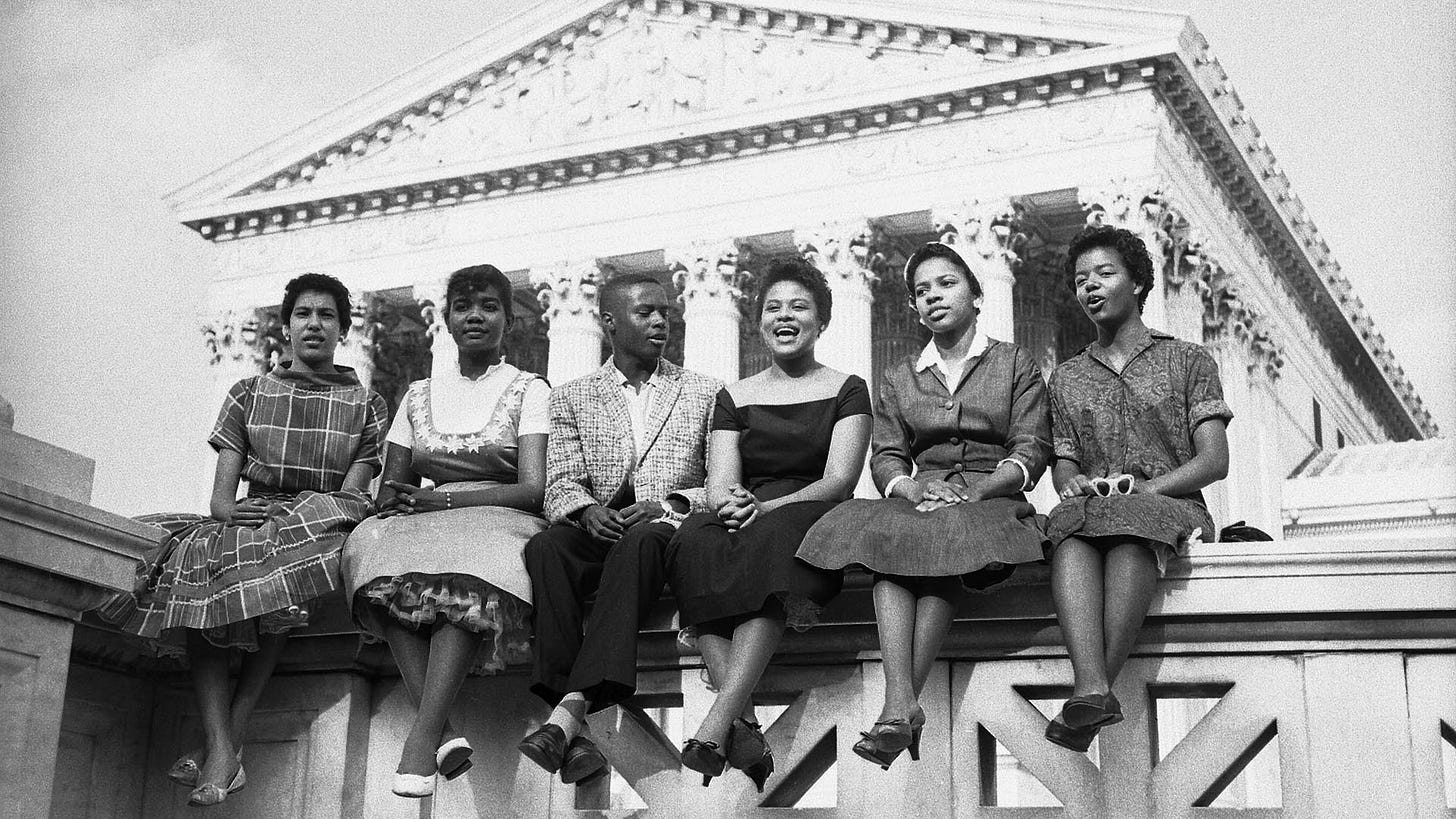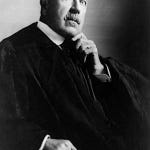This Day in Legal History: Little Rock Nine
On September 4, 1957, a constitutional crisis unfolded in Little Rock, Arkansas, when Governor Orval Faubus ordered the Arkansas National Guard to block nine Black students—known as the “Little Rock Nine”—from entering Central High School. This came after the U.S. Supreme Court’s landmark decision in Brown v. Board of Education (1954), which declared segregation in public schools unconstitutional. Faubus claimed the move was to prevent violence, but it was widely seen as defiance of federal desegregation orders.
The legal showdown intensified the struggle between federal authority and states’ rights. On September 4, the students arrived at Central High and were turned away by National Guard troops, prompting national outrage and escalating tensions over civil rights. In response, the NAACP filed a lawsuit in federal court, and on September 20, a federal judge ordered Faubus to remove the troops.
The confrontation culminated later that month when President Dwight D. Eisenhower, invoking the Insurrection Act of 1807, sent in federal troops from the 101st Airborne Division to enforce integration and protect the students. This marked one of the first times since Reconstruction that the federal government used military force to uphold civil rights rulings.
This day is remembered as a pivotal moment in civil rights legal history, illustrating the federal judiciary’s growing role in dismantling racial segregation and enforcing constitutional rights in the face of state resistance.
President Trump’s administration has asked the U.S. Supreme Court to urgently review a case challenging his use of emergency powers to impose broad tariffs. The request comes after a federal appeals court ruled on August 29 that Trump overstepped his authority under the International Emergency Economic Powers Act (IEEPA)—a 1977 law historically used to sanction enemies or freeze assets, not to impose tariffs. Trump had used IEEPA earlier this year to justify tariffs targeting trade deficits and drug trafficking from countries like China, Canada, and Mexico.
In the appeal, Solicitor General D. John Sauer emphasized the stakes, arguing that blocking the tariffs could endanger national security and economic stability. The administration asked the Court to decide by September 10 whether it will hear the case, hoping for arguments to be scheduled in November.
Small businesses and a coalition of 12 Democrat-led states sued to block the tariffs, arguing that only Congress can impose them. The appeals court agreed, stating that IEEPA doesn't authorize tariffs and warning against giving the president unchecked economic powers. The ruling also cited the “major questions” doctrine, which limits executive authority unless clearly granted by Congress in matters of broad economic or political importance.
The Trump administration argues that these tariffs are key tools for diplomacy and economic leverage. Treasury Secretary Scott Bessent urged the Supreme Court to act quickly, saying the ruling undermines the president’s ability to defend national interests. Other court decisions have similarly rejected Trump’s tariff strategy, and at least eight related lawsuits are ongoing.
Trump takes tariffs fight to US Supreme Court | Reuters
A federal judge ruled that the Trump administration unlawfully terminated $2.2 billion in federal research grants to Harvard University, marking a significant legal win for the school. U.S. District Judge Allison Burroughs found the administration’s actions violated Harvard's First Amendment rights, characterizing the move as ideologically motivated retaliation. The administration had claimed the funding cuts were due to Harvard's failure to adequately address antisemitism on campus, particularly following pro-Palestinian protests after the October 2023 Hamas attack on Israel.
Judge Burroughs acknowledged that Harvard had tolerated hateful behavior for too long but said the administration used antisemitism as a “smokescreen” for political pressure. She barred the government from cutting current or future funding and emphasized that academic research must be protected from arbitrary government action. Harvard had argued the funding cuts came after it resisted demands to restructure governance and academic programs to fit the administration’s ideological expectations.
The Trump administration has targeted several Ivy League schools over similar issues, including Columbia University, which agreed in July to pay $220 million to restore lost research funding. Trump previously said he would not settle with Harvard for less than $500 million. The administration has also tried to bar international students from Harvard and challenged its accreditation.
While Harvard President Alan Garber praised the ruling for affirming academic freedom, he did not comment on ongoing settlement talks. The university's faculty chapter of the American Association of University Professors, which co-litigated the case, opposes any deal with the administration, arguing it would compromise the rights of the academic community.
Trump administration unlawfully cut Harvard's funding, US judge rules | Reuters
Harvard $2 Billion Funding Freeze Found Illegal by US Judge (3)
Newsmax has filed a federal antitrust lawsuit against Fox Corporation and Fox News Network, accusing them of using their dominance in right-leaning cable news to suppress competition and block Newsmax’s growth. Filed in West Palm Beach, Florida, the lawsuit alleges that Fox pressured TV distributors to exclude or limit Newsmax, stalling the smaller network’s expansion in the pay-TV market for nearly a decade.
Newsmax claims Fox’s actions deprived conservative viewers of diverse news options and calls for monetary damages and a court order to stop the alleged anti-competitive practices. CEO Christopher Ruddy stated the lawsuit aims to restore market fairness and consumer choice. Fox, in response, dismissed the suit as an attempt to mask Newsmax’s market struggles, calling it headline-chasing.
Founded in 1998, Newsmax entered the pay-TV space in 2014 and went public earlier in 2025. The company asserts its programming offers a non-establishment alternative to Fox and claims it now reaches over 40 million Americans. It also noted a ratings boost surrounding the 2020 election.
This legal action follows Newsmax’s recent $67 million defamation settlement with Dominion Voting Systems over false claims about the 2020 election, and a previous confidential settlement with Smartmatic. Fox also settled with Dominion in 2023 for $787.5 million. The case has been assigned to U.S. District Judge Aileen Cannon, a Trump appointee.
Newsmax sues Fox, claiming TV distribution deals strangled business | Reuters
Newsmax Sues Fox News Claiming Conservative TV News Monopoly (2)













